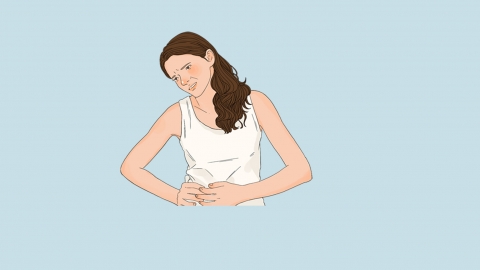What causes abdominal pain after medication abortion, and what should be done?
Generally, the main causes of abdominal pain after medical abortion include uterine contractions, abdominal chilling, intrauterine residue, endometritis, and pelvic inflammatory disease. Patients can choose appropriate management methods such as general care, medication, or surgical treatment based on their specific conditions. Detailed analysis is as follows:
1. Uterine Contractions
After a medical abortion, the uterus contracts to expel residual decidual tissue and accumulated blood from the uterine cavity. These contractions may stretch the uterine muscle layer, causing abdominal pain. Applying heat to the lower abdomen, drinking warm water, avoiding strenuous activity, and ensuring adequate rest can help promote uterine recovery.
2. Abdominal Chilling
Following a medical abortion, the body's resistance decreases. Inadequate warmth in the abdominal area allows cold exposure to stimulate smooth muscles of the uterus and intestines, leading to muscle spasms and worsening abdominal pain. It is important to dress warmly, apply a hot water bottle to the abdomen, avoid raw or cold foods, and stay away from cold environments.

3. Intrauterine Residue
Incomplete medical abortion may leave behind parts of pregnancy tissue or decidual tissue in the uterine cavity, which continuously stimulates uterine contractions and causes abdominal pain, often accompanied by prolonged vaginal bleeding. Under medical guidance, patients may take medications such as Yimucao Granules, Xinshenghua Granules, or Misoprostol Tablets. If medication fails to remove the residue, hysteroscopic removal of intrauterine remnants may be required. Postoperative care should include maintaining external genital hygiene.
4. Endometritis
After medical abortion, damage to the uterine lining may allow pathogens to invade and cause inflammation. Inflammatory stimulation leads to congestion and edema of the endometrium, resulting in abdominal pain, increased vaginal discharge, and foul odor. Under medical supervision, antibiotics such as Cefuroxime Axetil Tablets, Metronidazole Tablets, or Levofloxacin Hydrochloride Tablets may be prescribed. Sexual intercourse should be avoided during treatment, and sanitary products should be changed frequently.
5. Pelvic Inflammatory Disease (PID)
After medical abortion, pathogens may ascend into the pelvic cavity, causing pelvic inflammation. This inflammation leads to congestion and edema of pelvic tissues, resulting in persistent lower abdominal pain, often accompanied by fever and lower back discomfort. Under medical guidance, medications such as Cefixime Dispersible Tablets, Azithromycin Tablets, or Doxycycline Hydrochloride Tablets may be used. Bed rest in a semi-recumbent position is recommended to help localize the infection, and physical exertion should be avoided.
In daily life, it is important to keep warm after medical abortion and avoid chilling; maintain external genital cleanliness and avoid tub baths and unhygienic sexual activity; eat a light diet rich in high-quality protein and vitamins; monitor vaginal bleeding and abdominal pain, and seek medical attention promptly if abnormalities occur; and avoid strenuous exercise and heavy physical labor for at least one month after the procedure.




